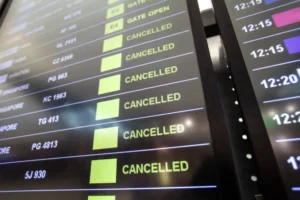The Anchorage Education Association entered tense discussions with the school district this week after last year’s contract expired. The Anchorage teacher contract negotiations remain ongoing, with union president Corey Aist warning that prolonged delays make working conditions increasingly difficult for educators across the district.
Aist explained that early bargaining resolved many non-financial issues productively, yet financial disagreements on pay and benefits remain significantly harder. He emphasized Anchorage’s lack of competitiveness in compensation, pointing to high annual turnover rates and consistent educator resignations as clear evidence. The union’s latest counterproposal seeks higher pay, more substantial health benefits and compensation for teachers moving classrooms or buildings during the year.
Meanwhile, the district’s proposal mirrors agreements on several matters but diverges sharply on compensation and health benefit structures, prolonging difficult negotiations. Wednesday’s bargaining session followed the district’s announcement of funding nearly 50 new full-time positions aimed at strengthening classroom support for students.
While Aist welcomed additional teaching roles, he stressed that competitive salaries are essential to filling positions and reducing chronic turnover. He argued that certified staff bring stronger behavioral management skills, advanced training, and necessary experience in reading science under the Alaska Reads Act.
According to Aist, Anchorage risks adding unfilled positions if salaries remain stagnant, undermining efforts to provide stability within classrooms statewide. The union maintains that raising compensation is crucial to retaining experienced teachers and ensuring classrooms remain staffed with qualified professionals.
The district acknowledges shared ground with the union, though disparities in financial priorities ensure negotiations remain contentious and unresolved. Both sides appear committed to continued discussion, with the next scheduled bargaining session to resume next Wednesday in Anchorage.
Teachers remain hopeful progress will materialize, but frustrations grow as each week without a contract adds uncertainty to the district’s workforce. Ultimately, the outcome of the contract negotiations could define whether the district becomes competitive enough to attract and retain qualified educators.









